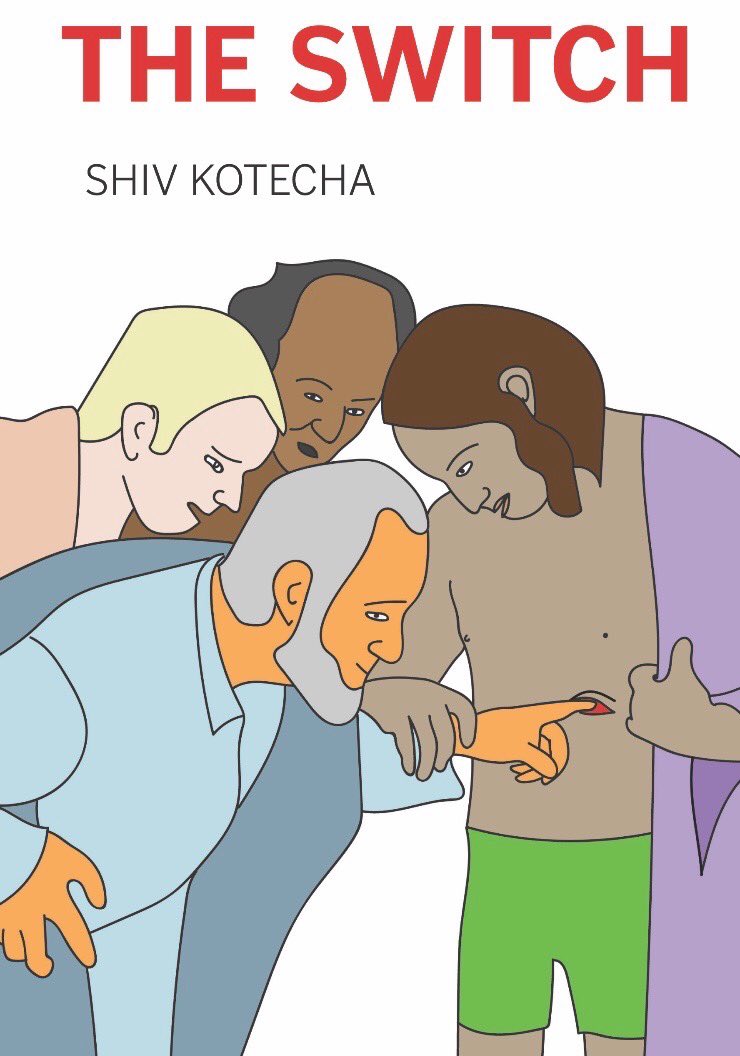
Format: 191 pp., paperback; Size: 5.5 x 8.5 in. Price: $13.95; Publisher: Wonder; Non-exhaustive list of types of guys who message the protagonist on an unnamed sex app: “cool guy”, “masc guy”, “bi guy”, “interesting guy”, “crazy guy”, “Gemini guy”, “good guy”; Number of times that the word “sorry” appears in The Switch: 19; Representative sentences: “I give you / at least one hundred / million trillion / little kisses. But no big ones.”
Central Question: What if avoidance works?
In “Friendship as a Way of Life,” Michel Foucault writes that the point of gayness “is not to discover in oneself the truth of one’s sex, but, rather, to use one’s sexuality henceforth to arrive at a multiplicity of relationships.” It’s not about asking what queerness is, but about asking what it can do, and for Foucault, the gayest part of being gay isn’t sex—not even cruising!—but friendship. Friends “have to invent, from A to Z, a relationship that is still formless, which is friendship: that is to say, the sum of everything through which they can give each other pleasure.” Reading this now is depressing; Foucault thought so much could happen just from gay people being friends.
Anne Garréta wrote that “to appease is not the same as to fulfill,” and it’s telling that Shiv Kotecha chose this quote for the epigraph of his new book of poetry, The Switch. The appeasement in The Switch refers perhaps to the erotic friendship between two characters, Shiv and Diana, in the opening poem, I’m sorry, Shiv. I’m sorry, Diana. They are both gay, but want to be straight for each other. The hypothetical arrangement is less because of homophobia, although that still exists in external and internalized forms. For the narrator’s family, heterosexuality is both rooted in “tradition” and an assimilation tactic that sometimes works and sometimes doesn’t. You may be straight, chirps pinkwashing American life, but only by clinging to your religious and cultural values, unlike the rest of us in the (supposedly) secular, liberal west. Being straight is a way to be like your family, which has been excluded, but it also means being straight. Marrying your lesbian best friend seems like a way to have both, but it also just sounds nice, or like maybe it’s already happened. They share a Brooklyn apartment and a cat. They make each other feel specific and adored, functioning not just as an informal economic unit designed to reduce the costs of NYC living more bearable, but as a mini-hub of social reproduction—cuddling, bickering about Catullus—as a...
You have reached your article limit
Sign up for a digital subscription and continue reading all new issues, plus our entire archives, for just $1.50/month.
Already a subscriber? Sign in




